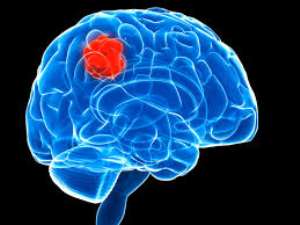
Revolutionary advancements in brain tumor research are taking place in the fields of neurology and neurosurgery, and these developments have the potential to revolutionize our comprehension, diagnosis, and treatment of these intricate disorders. I am thrilled to discuss some of the amazing discoveries that are influencing the course of brain tumor research as a physician who is well-versed in the area.
1. Liquid Biopsies: Traditionally, invasive techniques were required to get a biopsy of a brain tumor. But the advent of liquid biopsies is altering the dynamics. These blood tests offer a non-invasive way to identify and track brain tumors by analyzing circulating tumor DNA. The genetic composition of tumors may be seen in real time with liquid biopsies, which helps inform treatment choices and open the door to more individualized therapy strategies.
2. Advanced Imaging Techniques: With major advancements in imaging technologies, we can now see the anatomy and function of the brain like never before. Neurosurgeons may now visualize and accurately target tumors because to innovations like improved diffusion imaging, positron emission tomography (PET), and functional magnetic resonance imaging (fMRI). This improves surgical outcomes and reduces damage to healthy brain tissue.
3. Breakthroughs in Immunotherapy: Immunotherapy, a novel technique to treating cancer, is currently making progress against brain tumors. Therapies that use the body's immune system to identify and combat tumor cells are being developed by researchers. Although obstacles still exist, preliminary findings suggest that immunotherapy has the potential to be an effective weapon against specific kinds of brain cancers.
4. Targeted Therapies: With the advent of precision medicine, targeted therapies are now available. These medications target particular molecular and genetic traits of malignancies. Treatments can be administered more safely and effectively thanks to this individualized method. Novel targets for therapy are being found by researchers, which is moving us closer to customized interventions that target the distinct biology of each patient's tumor.
5. Applications of Nanotechnology: Drug delivery and brain tumor imaging are two areas where Nanotechnology is breaking new ground. Therapeutic agent-loaded nanoparticles can penetrate the blood-brain barrier and deliver medications right to the tumor's location. Treatment efficacy is increased and adverse effects are reduced by this focused delivery.
6. Artificial Intelligence in Diagnosis: The discipline of diagnostics is undergoing a revolution thanks to artificial intelligence (AI). Large volumes of medical data can be analyzed by machine learning algorithms, which helps in brain tumor categorization and early diagnosis. Artificial Intelligence has the capacity to optimize diagnostic procedures, resulting in quicker and more precise evaluations.
Researchers, physicians, and digital innovators working together are driving an incredible rate of change in the field of brain tumor research. Patients and their families can now look forward to new opportunities for early detection, accurate diagnosis, and creative treatment approaches thanks to these breakthroughs.
The revolutionary potential of these breakthroughs inspires me as a physician. The medical community's collective goal is to improve patient outcomes, raise quality of life, and eventually find a cure for these difficult diseases, which is shown in the continued dedication to deciphering the complexity of brain tumors. The fight against brain tumors is a tribute to the scientific community's tenacity and the unshakable commitment of medical researchers.




 DR Congo thwarts Kinshasa 'coup attempt': army
DR Congo thwarts Kinshasa 'coup attempt': army
 Media has made good progress in Ghana — Frema Opare
Media has made good progress in Ghana — Frema Opare
 E/R: We will demonstrate against our parliamentary candidate for disappearing af...
E/R: We will demonstrate against our parliamentary candidate for disappearing af...
 Kotokuom elders issue ultimatum to Kwaku Boah to stop defaming Atwima Agogohene ...
Kotokuom elders issue ultimatum to Kwaku Boah to stop defaming Atwima Agogohene ...
 W/R: Tragic premix explosion injures 16 in Ngyirasia
W/R: Tragic premix explosion injures 16 in Ngyirasia
 Election 2024: NDC pledges to scrap betting tax, targets 80% youth support
Election 2024: NDC pledges to scrap betting tax, targets 80% youth support
 Mahama was a one-term president because he was incompetent and brought untold ha...
Mahama was a one-term president because he was incompetent and brought untold ha...
 Blame IMF programme for Cedi's decline —Prof Bokpin
Blame IMF programme for Cedi's decline —Prof Bokpin
 Court denies Kasoa soldier killer bail
Court denies Kasoa soldier killer bail
 Ahmed Suale's killers will be brought to justice no matter how long it takes - A...
Ahmed Suale's killers will be brought to justice no matter how long it takes - A...
